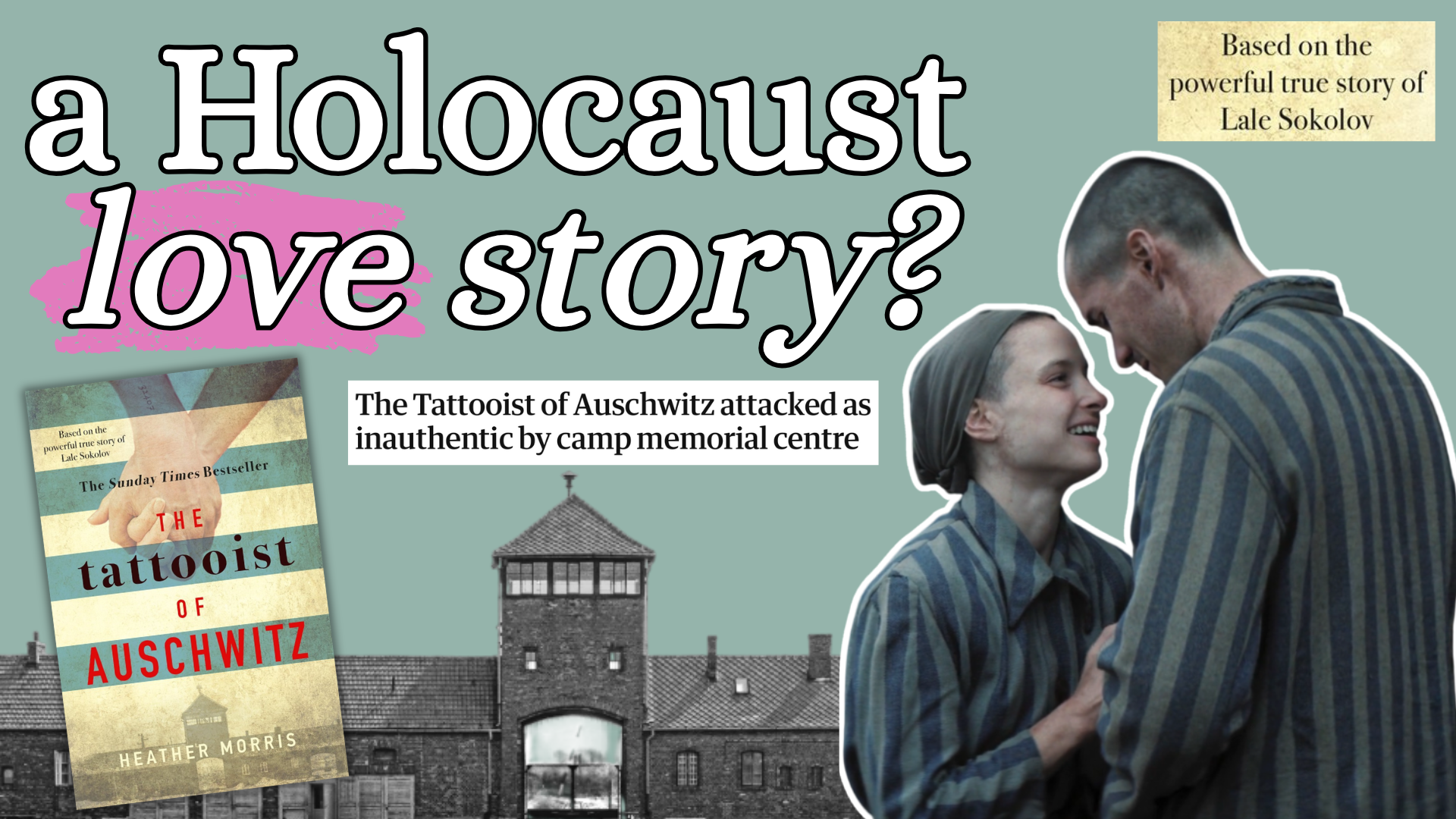The Tattooist of Auschwitz: Book and TV Series Review

Heather Morris' The Tattooist of Auschwitz (2018) has sold millions of copies, making it one of the most popular historical novels of all time. Its success has spawned a whole genre of similar titles that could be called the 'Auschwitz Genre' because of their echoing of Heather Morris' original title. What is it about the genre that makes it so appealing to readers? Could it be the authors' meticulous research to uncover survivor testimonies while they’re still here to tell their stories? Or could it be the juxtaposition at the heart of the genre - the setting of a love story during one of the worst moments in human history?
This may just seem like a video breaking down a new literary subgenre but it's also the start of one of my new goals on the channel - to critically discuss literary criticism about popular Holocaust fiction. In this video, I wanted to talk about some serious topics like the writing of dark stories for popular audiences and the prioritisation of survivor testimonies above archival records. I'm really happy with how it's been received and the conversations that are happening already. Hopefully, this will be the start of many more like it! And bonus fun fact: I almost did my PhD research on this topic, before I saw the proposal for my current project (which may explain my disproportional level of knowledge about Heather Morris' literary career)!
Fact-Checking Articles from the Auschwitz Memorial Museum
Wanda Witek-Malicka, 'Fact-Checking “the Tattooist of Auschwitz”', Memoria, 14 (2018), 3-14 https://viewer.joomag.com/memoria-en-no-14-11-2018/0766192001543510530
Wanda Witek-Malicka, '‘The Tattooist of Auschwitz’: Fact-Checking Review of the Tv-Series', Memoria (2024) https://viewer.joomag.com/memoria-en-no-80/0563678001717006141
Quick reads
Alison Flood, 'The Tattooist of Auschwitz Attacked as Inauthentic by Camp Memorial Centre', Guardian (2018) https://www.theguardian.com/books/2018/dec/07/the-tattooist-of-auschwitz-attacked-as-inauthentic-by-camp-memorial-centre
Ellen Wexler, '‘The Tattooist of Auschwitz’ Demonstrates the Limits of Holocaust Fiction', Smithsonian Magazine (2024) https://www.smithsonianmag.com/history/tattooist-of-auschwitz-demonstrates-limits-holocaust-fiction-180984267/
Christine Kenneally, '‘The Tattooist of Auschwitz’ and the History in Historical Fiction', New York Times (2018) https://www.nytimes.com/2018/11/08/books/tattooist-of-auschwitz-heather-morris-facts.html
Clarissa Sebag-Montefiore, ''Stealing Moments, Stealing Time': The Love Story That Started with a Tattoo in a Death Camp', Guardian (2018) https://www.theguardian.com/books/australia-books-blog/2018/feb/16/stealing-moments-stealing-time-the-love-story-that-started-with-a-tattoo-in-a-death-camp
Jan Lanicek, and Rebecca Cordony, 'The Tattooist of Auschwitz Is Controversial, but Is Historical Accuracy More Important Than Awareness?', The Conversation (2024) https://theconversation.com/the-tattooist-of-auschwitz-is-controversial-but-is-historical-accuracy-more-important-than-awareness-229282
Long reads
Anna Hirsh, Jan Lanicek, Samantha Mitschke, and Kirril Shields, 'The Tattooist of Auschwitz and the Trivialisation of the Holocaust: A Roundtable Discussion', The Australian Journal of Jewish Studies, 32 (2019), 2+
Claire Parnell, and Beth Driscoll, 'Institutions, Platforms and the Production of Debut Success in Contemporary Book Culture', Media international Australia incorporating Culture & policy, 187 (2023), 123-38
David Dickson, 'Continuing Trends in Popular Holocaust Fiction: Heather Morris and the Corporealization of Women’s Suffering', Genealogy, 4 (2019)
David John Dickson, 'The Problematic Nature of Modern Holocaust Fiction: From Holocaust Impiety to the Suffering Body' (University of Portsmouth, 2019) https://researchportal.port.ac.uk/en/studentTheses/the-problematic-nature-of-modern-holocaust-fiction